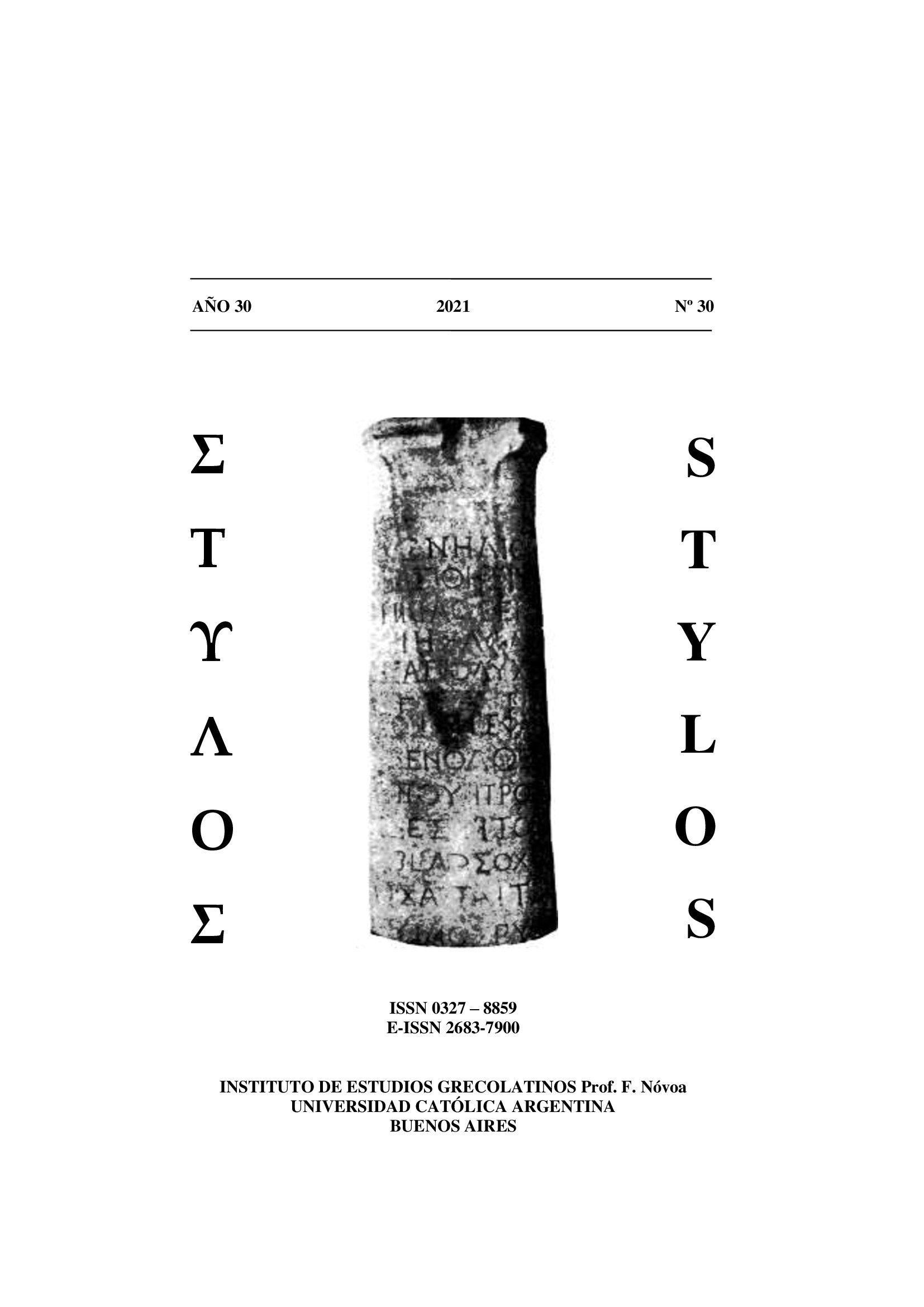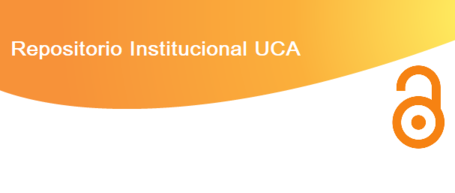ESTRATEGIAS ARGUMENTATIVAS EN LOS DISCURSOS DIDÁCTICOS DE ARISTÓTELES
DOI:
https://doi.org/10.46553/sty.30.30.2021.p101-123Keywords:
Aristotle – dialectics – didactics – knowledge.Abstract
In this work we examine the didactic value that the use of dialectics has in Aristotelian writings. To do this, we will divide the paper into two parts. In the first one we will make a brief description about the nature of the preserved texts of the Stagirite. In the second, we will examine the use of dialectical strategies used by Aristotle. To do so, we will focus on works such as On Philosophy; Protrepticus, Metaphysics Topics, Posterior Analytics, and Nicomachean Ethics, works in which he makes relatively explicit references to the question studied here.
Downloads
References
AGUIRRE SANTOS, J., Dialéctica y filosofía primera. Lectura de la Meta-física de Aristóteles, Zaragoza: Universidad de Zaragoza, 2015.
AGUIRRE SANTOS, J. La aporía en Aristoteles: Los Libros B y K 1-2 de La Metafísica, Madrid: Dykinson, 2007.
AUBENQUE, P., El problema del ser en Aristóteles. trad. cast. de Peña, V., Madrid: Escolar y Mayor Editores, 2008 (1962).
BARNES, J. “Roman Aristotle”, in Barnes, 1-70. En Griffin, M. (ed.), Philosophia Togata II: Plato and Aristotle at Rome, Oxford: Claredon Press, 1997.
BERTI, E., La filosofia del “primo” Aristotele, Milano, Centro di Ricerche di Metafisica dell’ Università Cattolica del Sacro Cuore, 1997.
BIGNONE, E., L’ Aristotele perduto e la formazione filosofica de Epicuro, 2da edizione accresciuta, Firenze: La Nuova Italia, 1973 (1936).
BOLTON, R., “The Epistemological Basis of Aristotelian Dialectic”, 185-236. En Devereux, D. - Pellegrin, P. (Eds.), Biologie, logique et métaphysique chez Aristote, Paris: Éditions Centre National de la Recherche Scientifique, 1990.
BRONSTEIN, D., Aristotle on Knowledge and Learning, The Posterior Analytics, Oxford: Oxford University Press, 2016.
BRUNSCHWIG, J.,“Remarques sur la communication de Robert Bolton”, 237- 262. En Devereux, D.- Pellegrin, P. (Eds), Biologie, logique et métaphysique chez Aristote, Paris: Éditions Centre National de la Recherche Scientifique, 1990.
CALVO MARTÍNEZ, T. Aristóteles, Metafísica. Introducción, traducción y notas, Madrid: Gredos, 2007.
CHARLES, D., “Definition and Explanation in the Posterior Analytics and Metaphysics”, 286-322. En Charles, D. (ed), Definition in Greek Philosophy, Oxford: Oxford University Press, 2010.
CASTAGNOLI, L., Ancient Self-Refutation. The Logic and History of the Self-Refutation Argument from Democritus to Augustine, Cam-bridge: Cambridge University Press, 2015 (2010).
CLEARY, J., Aristoteles. Los Múltiples sentidos de prioridad, Trad. caste-llana de Boeri, M., Buenos Aires: Colihue, 2010 (1988).
CANDEL SANMARTÍN, M., Aristóteles. Tópicos en Tratados de lógica I. Introducción, traducción y notas, Madrid: Gredos, 1988.
CANDEL SANMARTÍN, M. Aristóteles. Analíticos Segundos, en Tratados de lógica II. Introducción, traducción y notas Gredos, Madrid, 1995.
DÜRING, I. Aristotle’s Protrepticus. An Attempt at Reconstruction, Göte-borg: Almqvist & Wiksell, 1961.
DÜRING, I. Aristóteles. Exposición e interpretación de su pensamiento. Trad. cast. de Navarro, B. México: Universidad Nacional Autó-noma de México, 2005 (1966).
DURING, I. Aristotle in the Ancient Biographical Tradition, Gúteborg: Almqvist & Wiksell Stockholm, 1957.
ECHANDÍA, G., Aristóteles. Física. Introducción, traducción y notas, Madrid: Gredos, (1995).
HATZIMICHALI, M. “The texts of Plato and Aristotle in the first century B. C”, 1-27. En Schofield. M. (ed) Aristotle, Plato and Pythago-reanism in the First Century B.C., Cambridge: Cambridge Univer-sity Press, 2012.
HUTCHINSON D. S. - JOHNSON, M. R. “Protreptic and Apotreptic: Aristo-tle’s Dialogue Protrepticus”,111-154. En, Kotzé, A. - Van der Meeren, S. (ed.), When Wisdom Calls Philosophical Protreptic in Antiquity, Turnhout: Brepols, 2018.
JAEGER, W. Aristóteles. Bases para la historia de su desarrollo. Trad. cast. Xirau, J. - Wenceslao Roces, W. México: Fondo de Cultura Económica, 1993 (1923).
LLOYD, G. E. R., Aristotle: The Growth and Structure of his Thought, Cambridge: Cambridge University Press, 1968.
MIÉ, F., “Dialéctica y ciencia en Aristóteles”, Signos Filosóficos, 2009 XI 21, 9-42.
MIÉ, F., “Phenomena and Beliefs in Aristotle. An interpretation on the methodological role of éndoxa in natural science”, LOGOS. Ana-les del Seminario de Metafísica, 2013 46, 211-234.
MORAUX, P., Le Listes Anciennes des ouvrages d’Aristote, Louvain: Édi-tions, Universitaires de Louvain, 1951.
NUSSBAUM, M. C. “Saving Aristotle's appearances”, 267-294. En Schofield, M. (ed.), Language and Logos Studies in ancient Greek philosophy presented to G. E. L. Owen, Cambridge: Cam-bridge University Press, 1982.
OWEN, G. E. L. “Tithenai ta phainomena”, 83- 103. En Aristote et les problèmes de méthode, Louvain, 1961.
PAJÓN LEYRA, I. “The Aristotelian Corpus and the Rhodian Tradition: New Light from Posidonius on the Transmission of Aristotle's Works”, The Classical Quarterly 2013, 63 723 – 733.
RAPP, C. “The Nature and Goals of Rhetoric”, 579-596. En Anagnos-topoulos, G. (ed.), A Companion to Aristotle, Oxford: Blackwell Publishing, 2009.
ROSE, V. Aristotelis qui ferebantur Librorum Fragmenta, Teubner: Stuttgart, 1966 (1886).
ROSS, W. D. Aristotelis Dialogorum Fragmenta, Oxford: Clarendon Press, 1964.
ROSSI, G. “Going through Aporiai: The Critical Use of Aristotle's Dia-lectic”, Oxford Studies, Ancient Philosophy, 2017, 209 – 256.
SEGGIARO, C. “El fragmento 48 del Protréptico de Aristóteles: ¿vocabu-lario platónico o concepciones platónicas?”, Revista Classica, 2016 29, n. 2, 33-54.
SINNOTT, E. Aristóteles. Ética Nicomáquea. Introducción, traducción y notas, Buenos Aires: Colihue, 2015.
TANNER, R. G. Aristotle's Works: The Possible Origins of the Alexandria Collection, 1-15. En MacLeod, R. (ed.), The Library of Alexan-dria, London: I.B.Tauris, 2010.
VALLEJO CAMPOS, A. Aristóteles. Fragmentos. Introducción, traducción y nota, Gredos: Madrid, 2005
Downloads
Published
How to Cite
Issue
Section
License






